Listen on Spotify
With the experience of hundreds of gigs I’ll make your dinners even better. Man and wooden guitar, natural charisma, suitably humor, and hundreds of songs software. Here we go for stay good together.
With the experience of hundreds of gigs I’ll make your dinners even better. Man and wooden guitar, natural charisma, suitably humor, and hundreds of songs software. Here we go for stay good together.

Adjunct Assistant Professor of Neurology, University of Rochester
Dan Kinel is a lawyer by training and profession. Since being diagnosed with Parkinson’s Disease in 2013, he has also become deeply involved both in patient advocacy and Parkinson’s Disease research. Over the course of his almost three decades as a corporate and securities lawyer, he represented numerous companies, from start-ups to NYSE-listed public companies, in corporate governance, corporate finance, securities compliance and other business law matters.

Executive Vice President, Davos Alzheimer’s Collaborative
Vaibhav A. Narayan Ph.D., MBA is currently the Chief Industry Officer, UK Mental Health Mission at the University of Oxford and EVP at the Davos Alzheimer’s Collaborative, a multi-stakeholder partnership committed to bringing data and insights from diverse cohorts around the world into Alzheimer’s Disease research. Prior to joining UK Mental Health Mission, Vaibhav spent ~14 years at Johnson & Johnson (J&J) where he was Vice President of Data Sciences and Digital Health and a senior leader in the Neuroscience Therapeutic Area. Prior to J&J, Vaibhav held various leadership roles in Informatics and Data Sciences at Eli Lilly & Co. and multiple biotech companies including Celera Genomics where he participated in the Human Genome Project. During his career, in addition to running large internal programs within organizations, Vaibhav has helped form and lead multiple multi-stakeholder innovation ecosystems and large-scale public-private consortia at the intersection of data science, digital health, and neuroscience. Vaibhav holds multiple patents and has co-authored > 100 scientific publications in genomics, digital health, data science and neuroscience. Vaibhav obtained a PhD from Yale University in computational biology and an Executive MBA from Kellogg School of Management, Northwestern University.
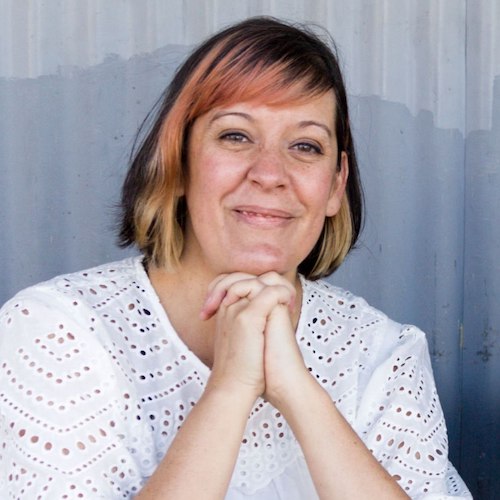
Amy Westervelt is an award-winning investigative print and audio journalist. In 2017 she founded the independent podcast production company Critical Frequency, which specializes in reported narrative podcasts. In 2020 she was executive producer of Unfinished: Short Creek, a co-production between Critical Frequency and Stitcher that was named one of the best podcasts of the year by The New Yorker The Atlantic, and received a Wilbur award for excellence in religion reporting. In 2021, she led the reporting and production teams of This Land S2 —an investigative, narrative season revealing the various forces behind efforts to unravel tribal sovereignty in the U.S. via attacks on the Indian Child Welfare Act—which was nominated in April 2022 for a Peabody Award. Her investigative climate podcast Drilled, a Critical Frequency original production, was awarded the Online News Association award for excellence in audio journalism in 2019 and Covering Climate Now’s award for excellence in audio journalism in 2021. Damages, a Drilled spin-off focused on climate litigation, launched in 2021 and received the Covering Climate Now audio award for 2022. Amy was named a Covering Climate Now Journalist of the Year in 2023. In 2015, she received a Rachel Carson award for women greening journalism, for her role in creating a women-only climate journalism group syndicating longform climate reporting to The Atlantic, The Guardian, The Economist, and many more outlets. A 20-year veteran investigative journalist, Westervelt’s earlier work for NPR, The Washington Post, The Wall Street Journal, Inside Climate News, and various other outlets earned her Edward R. Murrow, ONA, and Folio awards as well, and is often cited as amongst the earliest examples of accountability reporting on climate.
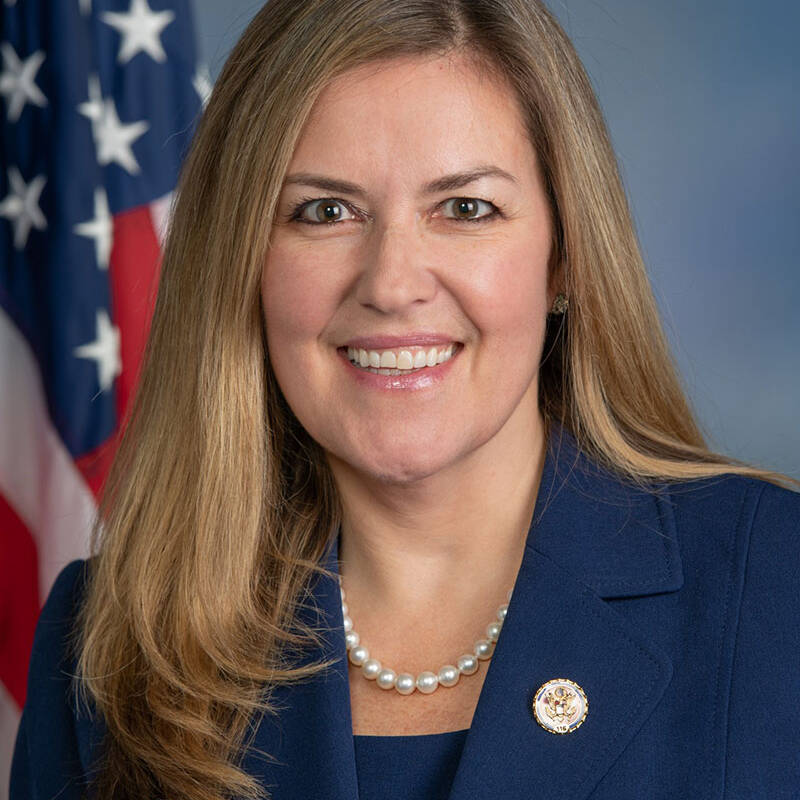
Congresswoman Jennifer Wexton has been serving the people of Northern Virginia for over two decades as a prosecutor, attorney, advocate for abused children, and state Senator. During her five years in the General Assembly, she passed more than 40 bipartisan bills, all while serving in the minority.
Now in Congress, Congresswoman Wexton has found success in working across the aisle to deliver results to better the lives of Virginia’s children and families. Wexton passed bipartisan legislative initiatives to expand funding for opioid addiction research, safeguard Americans’ retirement savings during the COVID-19 crisis, protect leave benefits for federal workers, modernize the Financial Crimes Enforcement Network, allow student veterans to use their benefits to study overseas, and ensure that leaders receive information about foreign disinformation campaigns on social media aimed at undermining U.S. elections.
Congresswoman Wexton serves on the powerful House Appropriations Committee, where she is responsible for securing funding for all of the government’s spending programs. Specifically, her subcommittee assignments focus on funding for transportation and housing and the legislative branch. Wexton is also a member of the House Budget Committee, which provides oversight of the legislative budget process.
Wexton is the founder of the Congressional Task Force on Digital Citizenship, which aims to help better equip Americans with tools and resources to use technology and engage online responsibly in an increasingly digital world, and the bipartisan Congressional Agritourism Caucus, which supports the agritourism industry and highlights its importance to local economies and communities. Wexton is also a member of the Congressional-Executive Commission on China, where she is working to combat human rights abuses.
A native of the Washington area, Wexton graduated with honors from the University of Maryland in College Park, and earned her law degree from the College of William and Mary in Williamsburg, Virginia. She lives in Leesburg with her husband, two sons, and two rescued labrador retrievers.
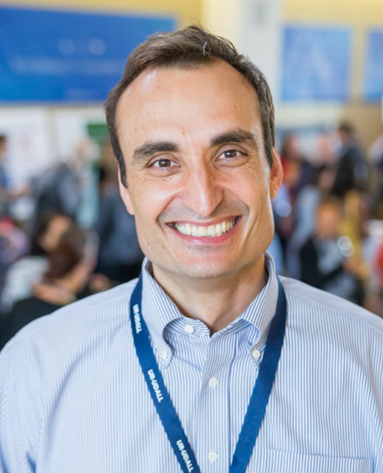
Dr. Ray Dorsey is the David M. Levy Professor of Neurology at the University of Rochester and one of the world’s most read, cited, and followed neurologists. With his colleagues, he wrote Ending Parkinson’s Disease, a book that provides a prescription for preventing and ending the world’s fastest growing brain disease.
Ray previously directed the University of Rochester’s Center for Health + Technology, was elected chair of the international Huntington Study Group, led the movement disorders division and neurology telemedicine at Johns Hopkins, and consulted for McKinsey & Company. He completed his undergraduate degree at Stanford University and pursued his medical education and neurology training at the University of Pennsylvania where he also earned an MBA in healthcare management from the Wharton School.
In 2015, the White House recognized Ray as a “Champion for Change” for Parkinson’s disease.

Whether the issue is climate change, clean energy, safeguarding privacy, nuclear non-proliferation, investor protection or preserving an open Internet that spurs competition and consumer choice, Senator Markey stands up for the priorities and values of Massachusetts.
While serving for 37 years in the U.S. House of Representatives, Senator Markey fought for his constituents throughout his Congressional District. When he was Dean of the Massachusetts delegation in the House, he worked to harness the energy and influence of his colleagues on behalf of the entire Commonwealth. Elected to the Senate in a special election in June 2013, Senator Markey is bringing his experience, energy and expertise to fight for all the people of Massachusetts.
Senator Markey has amassed an unparalleled record of energy and environmental legislative achievements. He has consistently fought to create new jobs in American clean energy and served as a leading consumer champion against rising gas prices and foreign oil. He is the principal House author of the 2007 fuel economy law, which will increase fuel economy standards to 54.5 miles per gallon by 2025, the first increase in a generation. He also is the author of the appliance efficiency act of 1987, which stopped the construction of hundreds of coal-fired plants. Senator Markey authored the law that established the Northeast Home Heating Oil Reserve, ensuring that New England families won’t be left out in the cold when oil prices spike. And he is the author of the revolutionary law that requires electricity regulators to open up the wholesale electric power market for the first time.
In 2009, Congressman Markey was the co-author of the landmark Waxman-Markey bill, the only comprehensive climate legislation ever to pass a chamber of Congress. It gave hope to the world that the United States was serious about addressing climate change and helped America effectively negotiate with the international community.
Senator Markey was a leading voice in the investigation into the BP oil spill. He insisted that the company reveal the true size of the spill’s flow rate, raised concerns about the use of toxic chemical dispersants into the environment and forced BP to make live video footage of the oil spill available to the public on the “Spillcam” website he created. BP ultimately pled guilty to 14 counts, including one count of Obstruction of Congress for making false and misleading statements and withholding information and documents from then-Rep. Markey about the true size of the spill.
In the House of Representatives, Congressman Markey served as the Ranking Member of the Natural Resources Committee. From 2007 to 2010, he served as Chairman of the Select Committee on Energy Independence and Global Warming, a signature committee established by then-Speaker Nancy Pelosi. He also served on the Energy and Commerce Committee, where he was Chairman of the Subcommittee on Energy and the Environment.
A member of the Commerce, Science and Transportation Committee, Senator Markey is a national leader on telecommunications policy, technology and privacy. In the House, he served for 20 years as Chair or Ranking Member of the Subcommittee on Telecommunications and the Internet, where he fostered the growth of new information technologies and was the principal author of many of the laws now governing our nation’s telephone, broadcasting, cable television, wireless, and broadband communications systems. He is the House author of the 1992 Cable Act, which increased choices for millions of consumers and enabled satellite-delivered programming to be more widely offered.
He also authored the law in 1993 that moved over 200 MHz of spectrum from government to commercial use, creating the 3rd, 4th, 5th, and 6th wireless phone companies. New companies entered the market with digital technology, forcing the incumbents to innovate and invest and pushing mobile phone prices down.
Congressman Markey authored the landmark Telecommunications Act of 1996, ushering competition into the telecommunications marketplace and unleashing private sector investment.
Competition remains Senator Markey’s economic mantra–in his words, “ruthless Darwinian competition that would bring a smile to Adam Smith.” He has been instrumental in breaking up anti-consumer, anti-innovative monopolies in electricity, long-distance and local telephone service, cable television, and international satellite services. He was one of the only members of the House Commerce Committee to fight AT&T’s monopoly in the early 1980’s and is a principal author of the requirement that the Bell Operating companies accept local telephone service in the 1990’s. His pro-competition policies have directly benefited job creation in Massachusetts and throughout the country.
While in the House, Congressman Markey introduced the Internet Freedom Preservation Act, the first net neutrality bill introduced in Congress, to ensure that as the Internet continues to evolve, it remains a level playing field guided by the principles of openness, competition and innovation. He also has been a key leader on providing privacy protections for personal information such as medical records, financial records, and on-line purchases. He has championed strengthening privacy protections for children and is the House author of the Children’s Online Privacy and Protection Act (COPPA), the primary law that safeguards children’s privacy online.
From 2003 to 2009 in the House of Representatives, Senator Markey also served as a senior member of the Homeland Security Committee. In that capacity, he focused on closing gaps in our homeland defenses, particularly in the areas of nuclear, aviation, maritime, liquefied natural gas and chemical security. In the wake of the 9-11 attacks, he authored the first-ever mandate in the law that 100% of cargo on passenger planes is screened, and 100% of all maritime cargo is scanned before entering America’s ports.
Senator Markey also was the leader of the national Nuclear Freeze movement and has been a Congressional champion on nuclear nonproliferation. His amendment to ban all underground nuclear testing passed in 1986, and in the 1990s, he fought to tighten controls on global trafficking in nuclear technology. Since then, Senator Markey has continued his work on nuclear nonproliferation, successfully enacting new restrictions on exports of nuclear and dual-use technologies to Iran, North Korea, and other countries designated as state sponsors of terrorism and pressing for stronger nuclear nonproliferation conditions on all future nuclear trade cooperation agreements As founder of the Nonproliferation Caucus, Senator Markey continues to spearhead efforts to prevent the spread of nuclear weapons to safeguard the future for generations to come.
He is the author of some of the most important Wall Street reform laws since the Great Depression, including statutes that strengthened penalties against insider trading, improved federal oversight over the stock and futures markets, and reformed regulation of the government securities market.
Senator Markey was born in Malden, Massachusetts, on July 11, 1946. He attended Boston College (B.A., 1968) and Boston College Law School (J.D., 1972). He served in the U.S. Army Reserve and was elected to the Massachusetts State House where he served two terms representing Malden and Melrose. He is married to Dr. Susan Blumenthal.
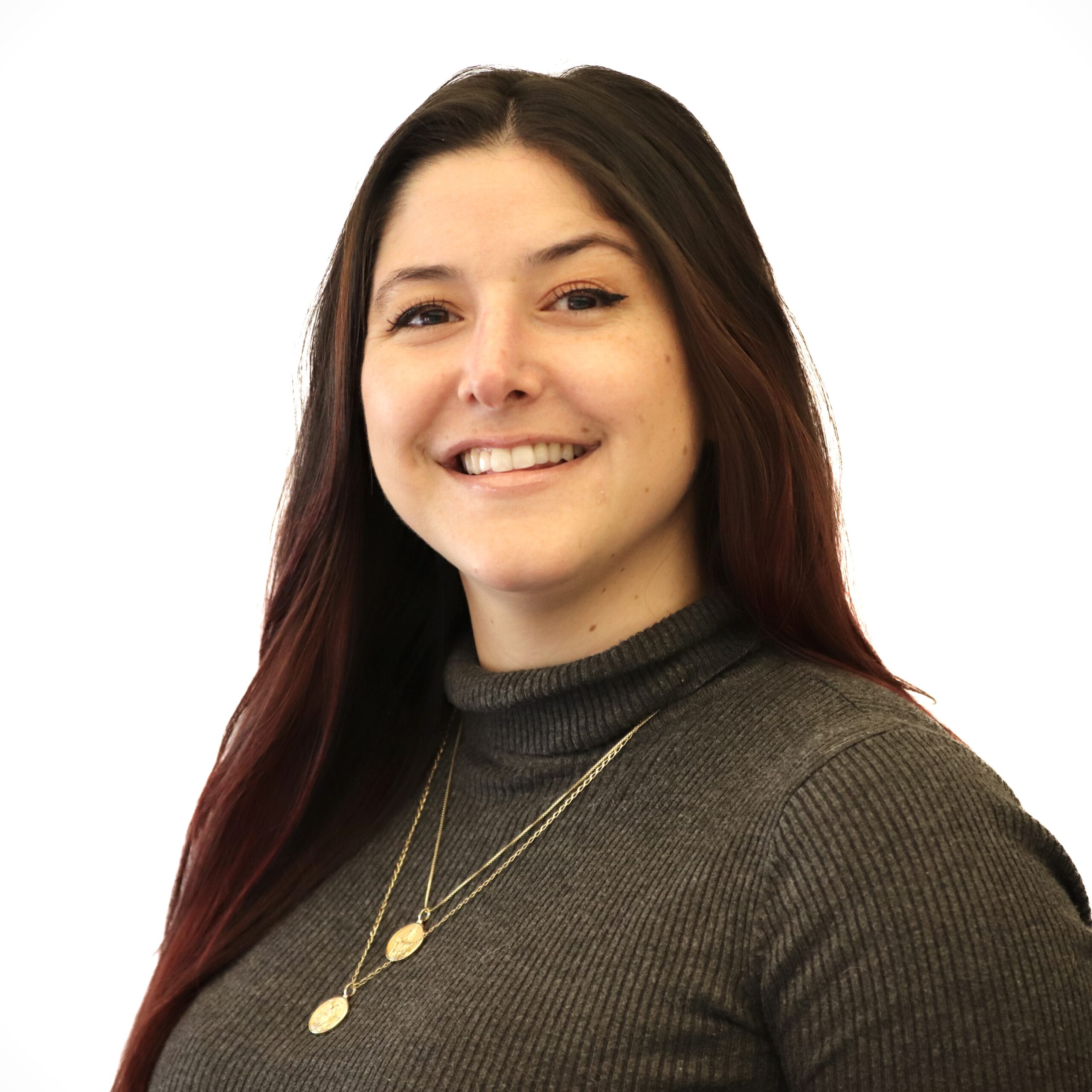
Jennifer Hijazzi is a Lebanese-American journalist with extensive experience, contributing to prestigious publications such as Bloomberg, Scientific American, Nature, Science Magazine, PBS NewsHour, Vox, Reveal, Arizona Public Media, the Arizona Daily Star, and Courthouse News. Currently positioned as a senior reporter at Bloomberg in Washington, D.C., she focuses on air pollution and climate change for Bloomberg Law’s environment desk, specializing in environmental justice, regulations, and litigation. Previously, Hijazzi covered the law and culture of climate change in the District of Columbia for E&E News. Prior to that, she reported on Congress and the judiciary for Courthouse News after her tenure at PBS NewsHour as an online reporter and broadcast news assistant. Hijazzi completed dual master’s degrees in Journalism and Middle Eastern and North African Studies in 2017. Her master’s project, concluded in April 2017, resulted in a multimedia report titled “Peripheries,” which highlighted four international border stories from the Middle East and North America, complemented by 360 videos of each story. This project was exhibited at Exploded View Microcinema in Tucson, Arizona, and at Yavapai College Art Gallery Prescott, Arizona. Her outstanding work earned her the University of Arizona School of Journalism awards for Top Graduate Student of the Year and Excellence in International Reporting, along with grants and awards from the Arizona Press Club, UA Center for Middle Eastern and North African Studies, and the Arts Foundation of Tucson and Southern Arizona. In 2017, Hijazzi served as president of the University of Arizona’s Online News Association, during which she conducted an experiment on measuring media effects of VR news, presented at the Association for Education in Journalism and Mass Communication’s (AEJMC) 2017 conference in Chicago in the Electronic News division. Additionally, she was part of the reporting team for “Bordering 110,” a project that received first place in AEJMC’s Best of Web competition and was presented at the 2017 conference.
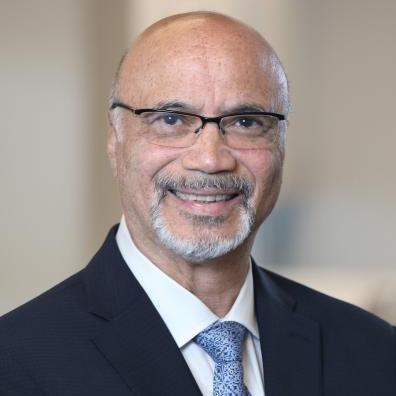
Dr. David A. Jett is Director of the Office of Neural Exposome and Toxicology (ONETOX) Research Program and the NIH Countermeasures Against Chemical Threats (CounterACT) Program, which is supported by a specific Congressional appropriation to the NIH for the development of new drugs and diagnostic tools for treating victims of chemical exposures during an emergency. He also serves as Program Director and Scientific Team Leader within the Division of Translational Research at the National Institute of Neurological Disorders and Stroke (NINDS). After receiving a Ph.D. in Neuropharmacology and Toxicology at the University of Maryland School of Medicine, Dr. Jett conducted post-doctoral research and subsequently joined the faculty at Johns Hopkins University’s Bloomberg School of Public Health where he conducted research as a university professor for several years. Dr. Jett’s scientific interest is in the impact of chemical agents on nervous system function, including the molecular and cellular mechanisms of cognitive and neural development. Specifically he has expertise and experience with pesticides and nerve agents. Dr. Jett is has authored many scientific articles and book chapters in the area of neurotoxicology and has chaired sessions and given keynote addresses at many national and international scientific meetings. He holds the position of Professor Adjunct of Chronic Disease and Epidemiology within the Yale School of Public Health. Dr. Jett has served on White House and intergovernmental committees that set the nation’s research priorities, as well as science advisory panels for the Environmental Protection Agency and the Department of Defense. Dr. Jett’s other major interest at NIH is training and programs designed to increase diversity in the neuroscience research workforce.
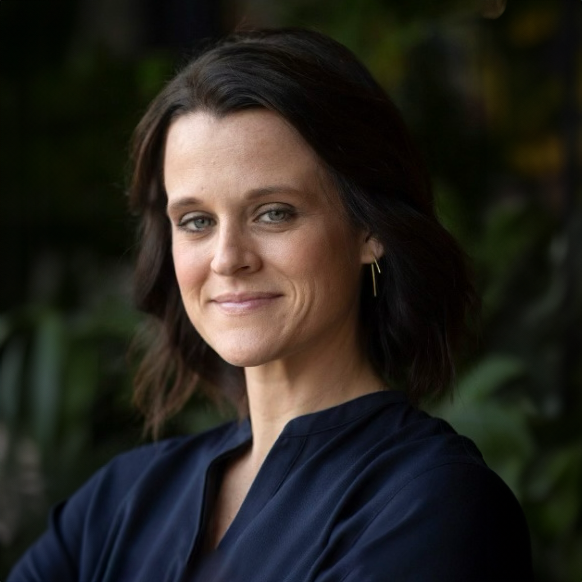
Deputy Assistant to the President for the Cancer Moonshot; Deputy Director for Health Outcomes, Office of Science and Technology Policy, The White House
Danielle Carnival, Ph.D. is Deputy Assistant to the President for the Cancer Moonshot and Deputy Director for Health Outcomes in the White House Office of Science and Technology Policy. She contributes to the Biden-Harris Administration’s effort to improve health outcomes for the American people, including leading the effort to achieve the President’s goal of ending cancer as we know it. As CEO of I AM ALS from 2018-2021, Dr. Carnival provided strategic leadership and management for this patient-driven community that is reshaping public understanding of ALS, providing key resources to the community, and creating opportunities for patients to lead the fight against ALS and the drive for cures. Prior, Danielle was Vice President of the Biden Cancer Initiative. From 2010 to 2017, Dr. Carnival worked at White House on issues in the areas of health and biomedical policy, STEM education, and advancing equity in STEM fields, among others. She served as Chief of Staff for the White House Cancer Moonshot and was entrusted with leadership roles for the President and Vice President on some of their signature initiatives and events, including White House Science Fairs, College Opportunity Days of Action, and Computer Science for All and Diversity in STEM initiatives. Danielle earned her Ph.D. in Neuroscience from Georgetown University, and B.S. in Biochemistry from Boston College.

Senior Vice President of Public Policy, The Michael J. Fox Foundation for Parkinson's Research
Ted Thompson, JD, is the senior vice president of public policy for The Michael J. Fox Foundation for Parkinson’s Research. Ted has more than 30 years of experience in public policy and government affairs, serving in several nonprofit leadership positions and as staff to two members of Congress.
Prior to joining the Foundation, Ted served as president and CEO of the Parkinson’s Action Network (PAN), a Washington, D.C.-based nonprofit focused on federal policy issues affecting people with Parkinson’s disease. Prior to PAN, Ted was the vice president of federal government relations at the National Multiple Sclerosis (MS) Society. He was also the senior vice president of public policy and mission advancement for the National MS Society, Minnesota Chapter; the president of the National Association to Prevent Sexual Abuse of Children; and the legislative counsel/director of federal relations at the Minnesota Medical Association. Ted has also independently consulted for several nonprofits, for-profit companies and political entities.
Previous to his work in nonprofit policy, Ted spent nine years working for two members of Congress. He served as chief of staff and communications director to Rep. Bill Luther (D-MN) and deputy district director for Rep. Gerry Sikorski (D-MN). He also ran for the state senate in Minnesota and while unsuccessful, the experience gives him another point of view in helping to shape policy.
Ted holds a bachelor’s degree in business administration and political science from the University of St. Thomas in St. Paul, Minnesota and a law degree from the William Mitchell College of Law (now Mitchell Hamline College of Law) in St. Paul, Minnesota. He and his wife have a daughter and two sons.
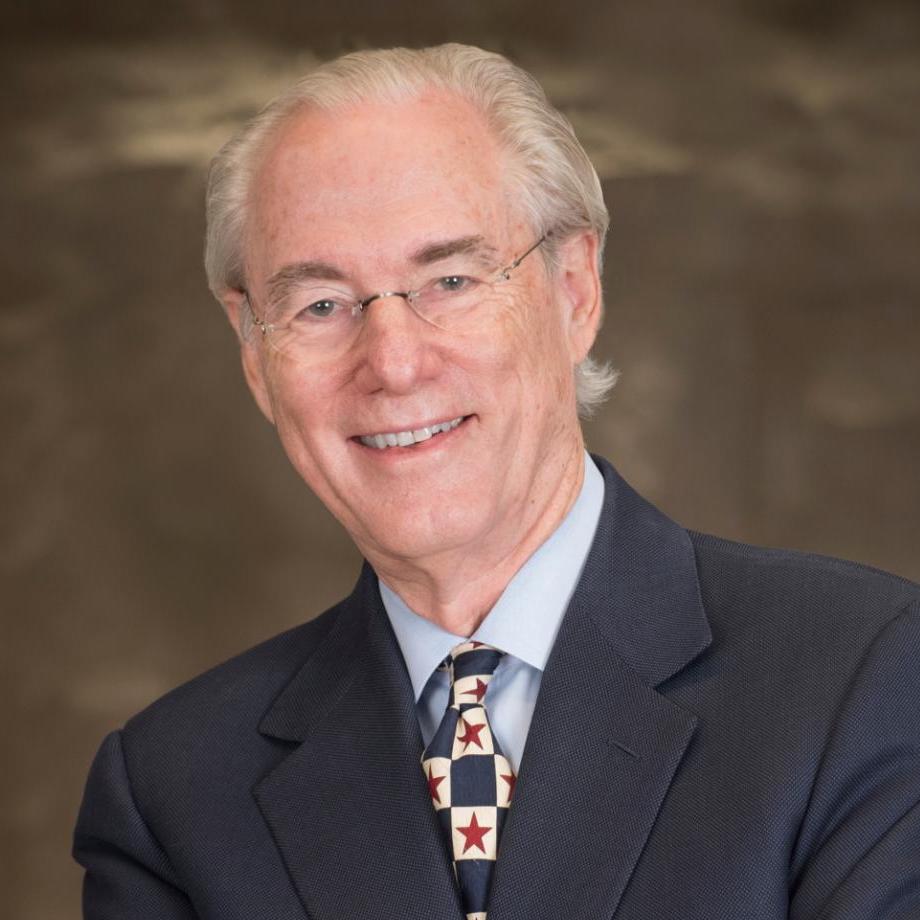
Chair & Co-Founder, UsAgainstAlzheimer's
George is Chairman of UsAgainstAlzheimer’s, which he co-founded in October 2010 with his late wife, Trish (1946-2017). He was named by U.S. Health and Human Services Secretary Kathleen Sebelius to serve as a founding member of the Advisory Council on Research, Care, and Services established by the National Alzheimer’s Project Act (NAPA Council) and has testified before Congress about the global Alzheimer’s pandemic.
Under his leadership, UsAgainstAlzheimer’s co-convenes both the Leaders Engaged on Alzheimer’s Disease (LEAD) Coalition and the Global CEO Initiative on Alzheimer’s Disease. In 2021, again under his leadership, UsAgainstAlzheimer’s launched a Swiss and U.S.-based global initiative to prevent Alzheimer’s called the Davos Alzheimer’s Collaborative, where Mr. Vradenburg serves as Founding Chairman.
He is also a founding member of the World Dementia Council. He has long been a dedicated member of Washington’s civic and philanthropic community, serving as Chairman of the Phillips Collection for 13 years.
Mr. Vradenburg is a member of the Council on Foreign Relations and the Economic Club of Washington. He has served in senior executive and legal positions at CBS, FOX, and AOL/Time Warner.
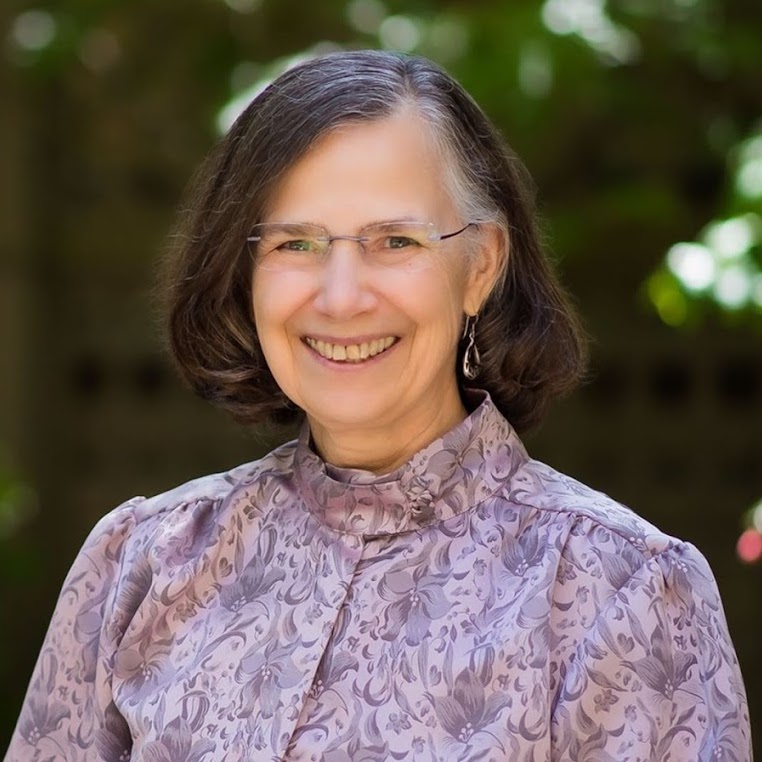
Professor & Vice Chair for Clinical Research, Weill Institute for Neurosciences, University of California - San Francisco
Dr. Caroline Tanner is the Director of the Parkinson’s Disease Research, Education and Clinical Center (PADRECC) at the San Francisco Veterans Affairs Medical Center. The PADRECC is dedicated to excellence in clinical care, education and research for veterans with Parkinson’s disease. She is also Professor of Neurology at the University of California – San Francisco. For more than 25 years, her research and clinical practice have been directed toward understanding the causes of Parkinson’s disease and to developing better treatments. Her work includes facilitating collaborative research locally and internationally, and using technology to improve patient access to research and clinical care. Dr. Tanner is committed to multidisciplinary research, involving basic, clinical and epidemiologic scientists as well as people with Parkinson’s disease. She has mentored numerous pre- and post-doctoral students, many of whom are now faculty members in medical schools throughout the world.

National Co-Coordinator, Environmental Justice Health Alliance
For over 25 years, Michele Roberts has provided capacity support, organizing, and technical assistance on the connections between chemicals management, oil and gas extraction, energy systems, and toxics exposure and legacy. All of which now have a monumental legacy impact on the global climate crisis. She supports communities in their efforts to make connections regarding the impacts of toxins on human health and the environment.
Michele is the National Co-Coordinator of the Environmental Justice Health Alliance for Chemical Policy Reform (EJHA), a national network of grassroots Environmental and Economic Justice organizations and advocates in communities that are disproportionately impacted by toxic chemicals from legacy contamination, ongoing exposure to polluting facilities and health-harming chemicals in household products.
Prior to advocacy, Michele was an environmental scientist for state and local governments. She has firsthand experience with local responses to chemical hazards and releases, and hails from Wilmington, Delaware where she continues to provide support to local organizing, in addition to being a leader in the local to national environmental and economic justice movement.
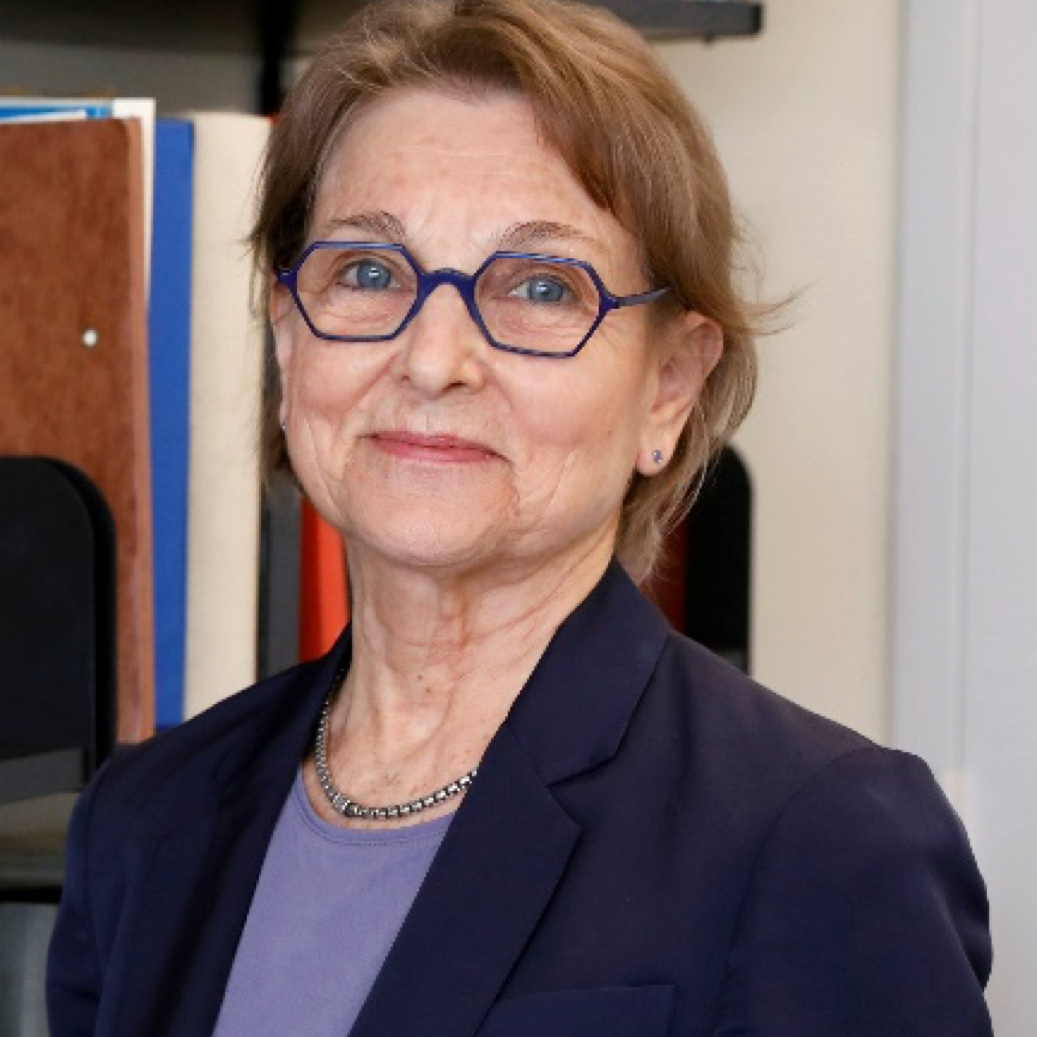
Professor & Vice Chair, Population & Family Health, Mailman School of Public Health, Columbia University
Dr. Rauh is the Jane and Alan Batkin Professor in Child Health and Well-being and Vice Chair of the Heilbrunn Department of Population and Family Health. For the past 20 years, as Deputy Director of the Columbia Center for Children’s Environmental Health, she has studied the developmental risks and biological mechanisms associated with exposure to toxic environmental conditions. Her landmark work, identifying persistent brain damage associated with early exposure to a widely used pesticide, contributed to major changes in public health policy, culminating in the total residential and agricultural banning of these chemicals by the U.S. Environmental Protection Agency. She is the inaugural Director of the Child Health Center for Learning and Development), and Director of Trauma-Free NYC, a Columbia University-Community Partnership focused on supporting trauma-informed practice and policies in New York City.
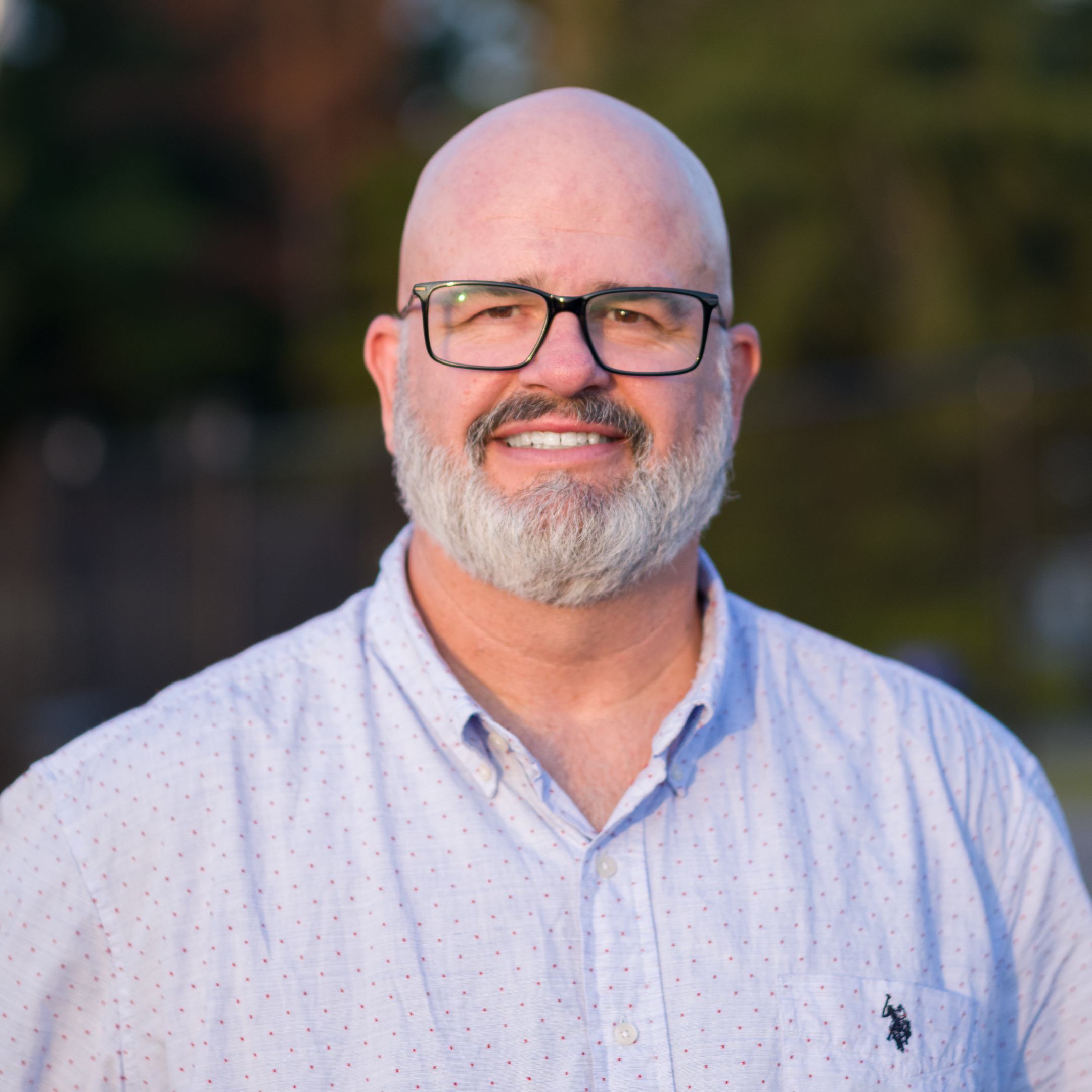
Camp Lejeune Dependent
Mr. Partain was born into a military family; his father graduated from the U.S. Naval Academy, His father and grandfather were both officers in the Marines. Mike was conceived and born aboard Marine Corps Base Camp Lejeune in North Carolina. Despite not smoking or drinking, and living a healthy lifestyle, he was diagnosed with breast cancer at the age of 39 – a likely result of the contaminated water in Camp Lejeune. Male breast cancer typically strikes men over the age of 70 and often has a hereditary link to the disease. Mike was tested for the BRCA 1 and 2 genes and was found to be negative for the gene. Since his diagnosis, Mr. Partain has been an advocate for the victims of the water contamination crisis. He has testified twice before Congress and an invited guest to the White House for the 2012 Janey Ensminger Act signing and again in 2022 for the Presidential signing of the Camp Lejeune Justice Act. In 2021, Mike completed his Masters in History at UCF in Florida with Camp Lejeune as his thesis topic. He has worked directly with victims to provide them resources and treatment, especially those who later developed breast cancer due to their exposure to contaminated water.
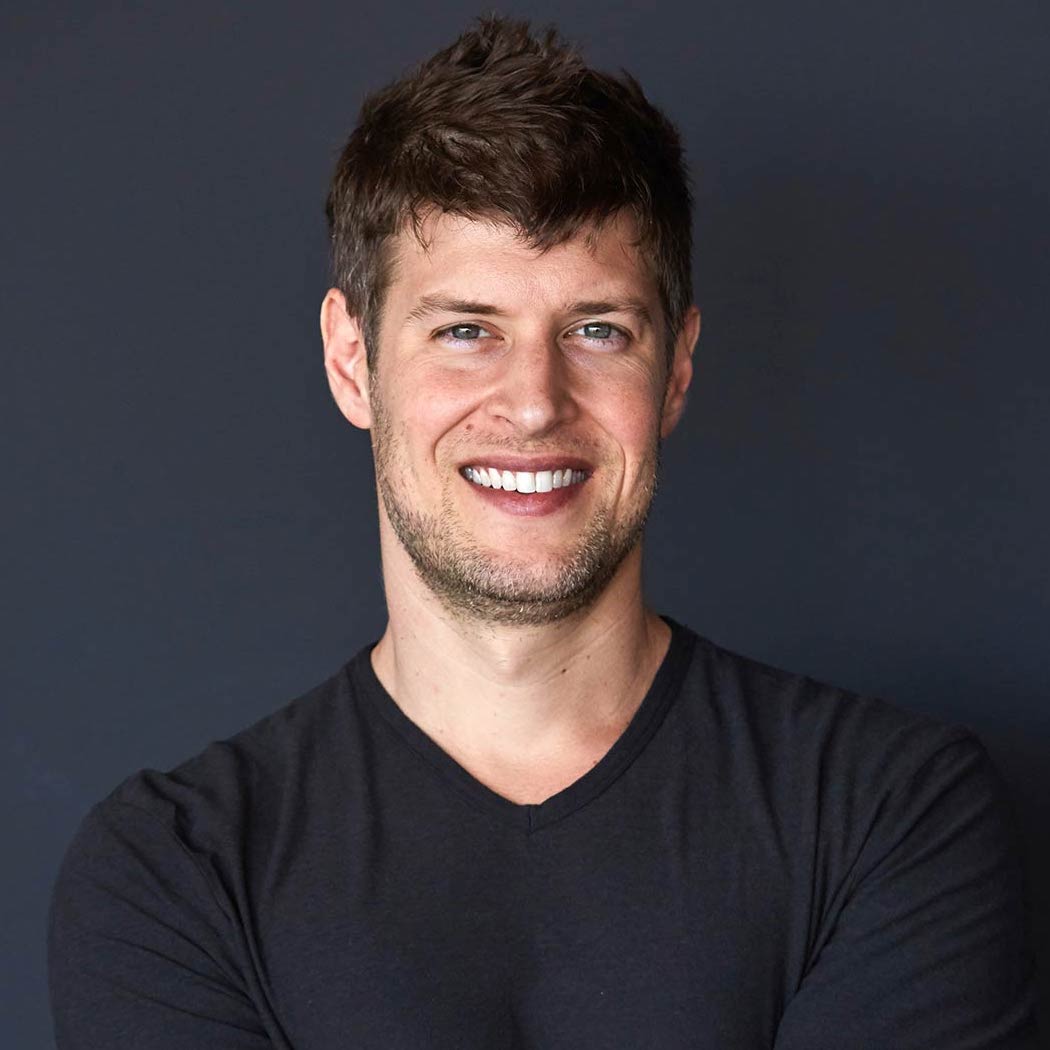
Journalist, Filmmaker, and Author
Max Lugavere is a health and science journalist, filmmaker, and bestselling author. His first book, Genius Foods, a New York Times bestseller, challenged our understanding of diet’s impact on brain health, while his Wall Street Journal bestseller Genius Kitchen married delicious recipes to his recommendations. He hosts The Genius Life podcast, one of the top health and wellness podcasts in the U.S, and commands an audience of over 1.5 million followers across social media. His contributions to programs like The Rachael Ray Show, The Today Show, NBC Nightly News, PBS’s Brief but Spectacular, and The Doctors, along with features in VICE, Fast Company, The New York Times, People Magazine, and CNN, and appearances on The Joe Rogan Experience and The Diary of a CEO, have made him a respected and well-known voice in the field. An engaging speaker on topical health and wellness topics, Lugavere regularly leads keynote talks and corporate seminars around the world, including at SXSW, The Biohacking Conference, the Health Optimization Summit, and many others.
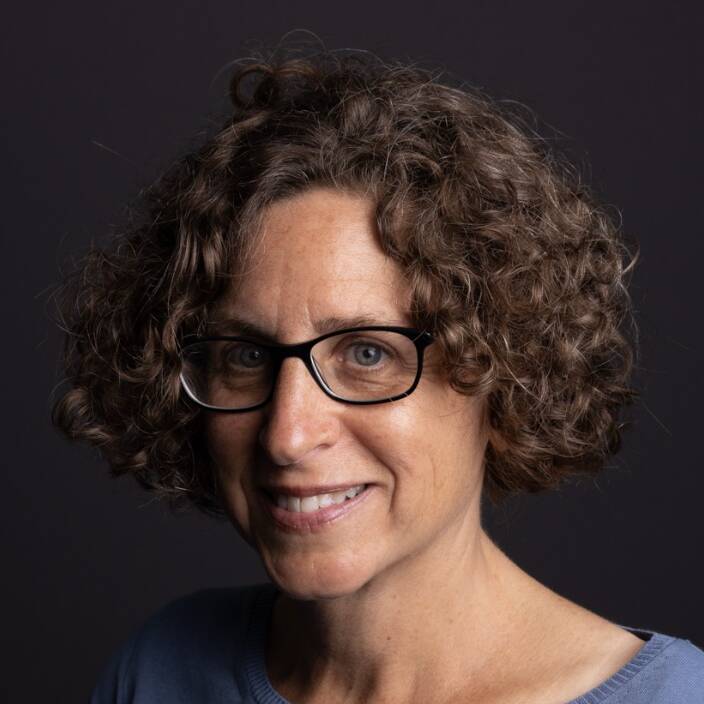
Reporter, ProPublica
Sharon Lerner is a reporter at ProPublica, which she joined in 2022 after working for seven years as an investigative reporter at The Intercept. Lerner covers health and the environment and focuses on environmental injustices, pesticides and air pollution, among other issues.
Lerner has reported extensively on PFAS, a family of manmade compounds linked to cancer, low-birthweight, immune dysfunction and other harms. She broke the news that firefighting foam used by the military contained was a source of widespread PFAS pollution and that GenX, a PFAS compound that DuPont created to replace the cancer-causing compound PFOA, also causes cancer.
Lerner has received 11 awards from the Society of Environmental Journalists and the Newswomen’s Club of New York named her its journalist of the year in 2021.

Founder, The Brian Grant Foundation
Brian Grant was an NBA idol, known for tenacious rebounding and a fearless attitude on the court. During his 12‐year career, he played for five teams and became a strong contributor to his surrounding communities. Today, Brian continues to inspire as a speaker, philanthropist, and a patient who insists on thriving with Parkinson’s disease. His mission is to help people become their best, even when it seems impossible.

Managing Editor, The New Lede and Guardian contributor
Carey Gillam is a veteran investigative journalist with more than 30 years of experience covering US news, including 17 years as a senior correspondent with Reuters international news service (1998-2015). She is the author of “Whitewash- The Story of a Weed Killer, Cancer and the Corruption of Science,” an expose of Monsanto’s corporate corruption of agriculture. The book won the coveted Rachel Carson Book Award from the Society of Environmental Journalists in 2018. Her second book, a narrative legal thriller titled The Monsanto Papers, was released March 2. 2021.
She also has contributed chapters for a text book about environmental journalism and a book about pesticide use in Africa.
Gillam testified as an invited expert before the European Parliament in 2017 about her research, and was a featured speaker at the World Forum for Democracy in Strasbourg, France in 2019. She also has been a keynote and/or panel speaker at events and universities throughout North America, Australia, The Netherlands, Brussels, and France. Gillam writes regularly for The Guardian. Her work has additionally been published in The New York Times, Huffington Post, Time, and other outlets.
In May of 2022, Gillam helped launch a non-profit environmental news outlet called The New Lede as a journalism initiative of the Environmental Working Group.
Gillam is a member of the Society of Environmental Journalists and North American Agricultural Journalists.
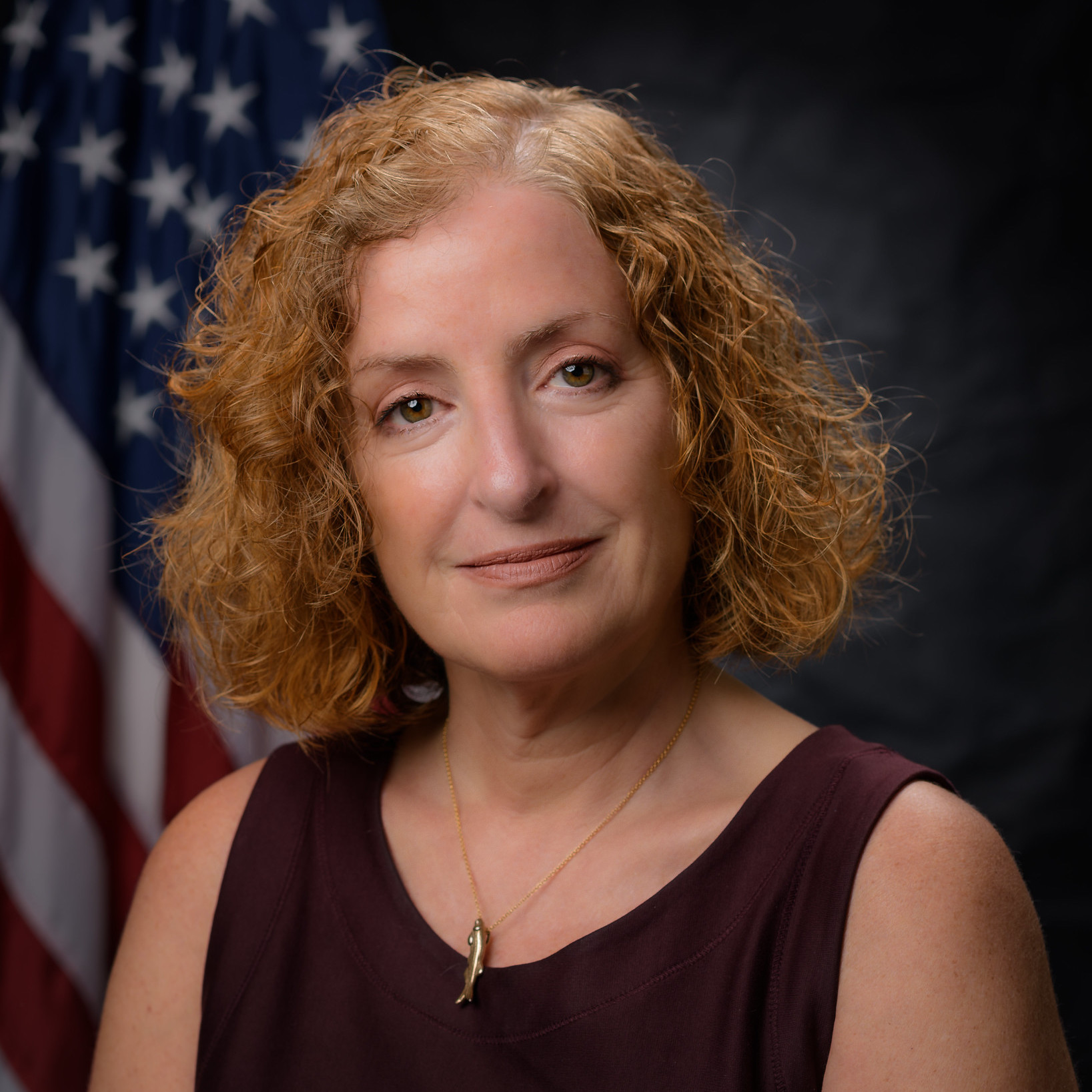
Assistant Administrator for EPA’s Office of Chemical Safety and Pollution Prevention
Michal Ilana Freedhoff is the Assistant Administrator for the Office of Chemical Safety and Pollution Prevention (OCSPP), effective June 2021. Prior to that, she joined EPA as the Principal Deputy Assistant Administrator for OCSSP in January 2021.
Dr. Freedhoff has more than 20 years of government experience, most recently as the Minority Director of Oversight for the Senate Environment and Public Works Committee. She began her Congressional service in 1996 in then-Congressman Ed Markey’s office as a Congressional Science and Engineering fellow after receiving a Ph.D. in physical chemistry at the University of Rochester.
Dr. Freedhoff has also served on the staffs of the House Science Committee, the House Select Committee on Energy Independence and Global Warming, the House Energy and Commerce Committee and the House Natural Resources Committee. With environmental expertise spanning a range of policy areas, her legislative work includes the 2016 re-authorization of the Toxic Substances Control Act, 2019 legislation to address PFAS contamination, the fuel economy provisions in the 2007 Energy Independence and Security Act, and a law requiring the creation of an online database of potential consumer product safety defects.
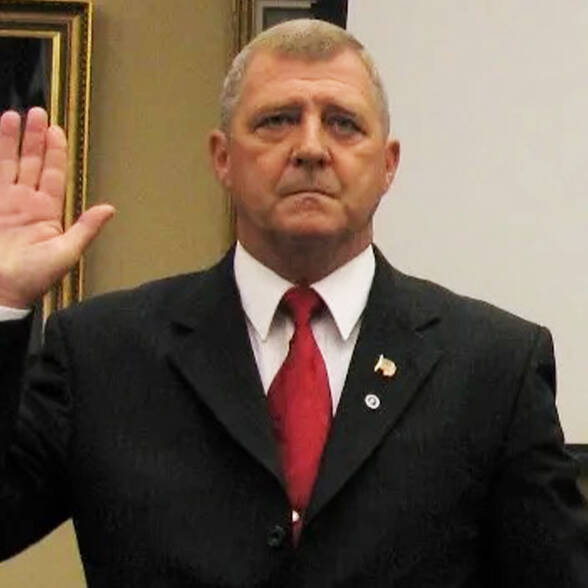
Retired Master Sergeant, U.S. Marine Corps
Jerry Ensminger is a retired Marine Corps Master Sergeant who became a prominent advocate for military personnel and their families affected by toxic contamination at Camp Lejeune, a U.S. Marine Corps base in North Carolina. Ensminger’s advocacy efforts stemmed from personal tragedy; his daughter, Janey, died of leukemia in 1985 at the age of nine, a tragedy he later attributed to the contaminated water at Camp Lejeune.
He played a crucial role in pushing for accountability, raising awareness about the issue, and advocating for healthcare and compensation for those affected. His activism contributed to the passing of the Janey Ensminger Act in 2012, which provided healthcare to Marines and their families who were exposed to contaminated water at Camp Lejeune.
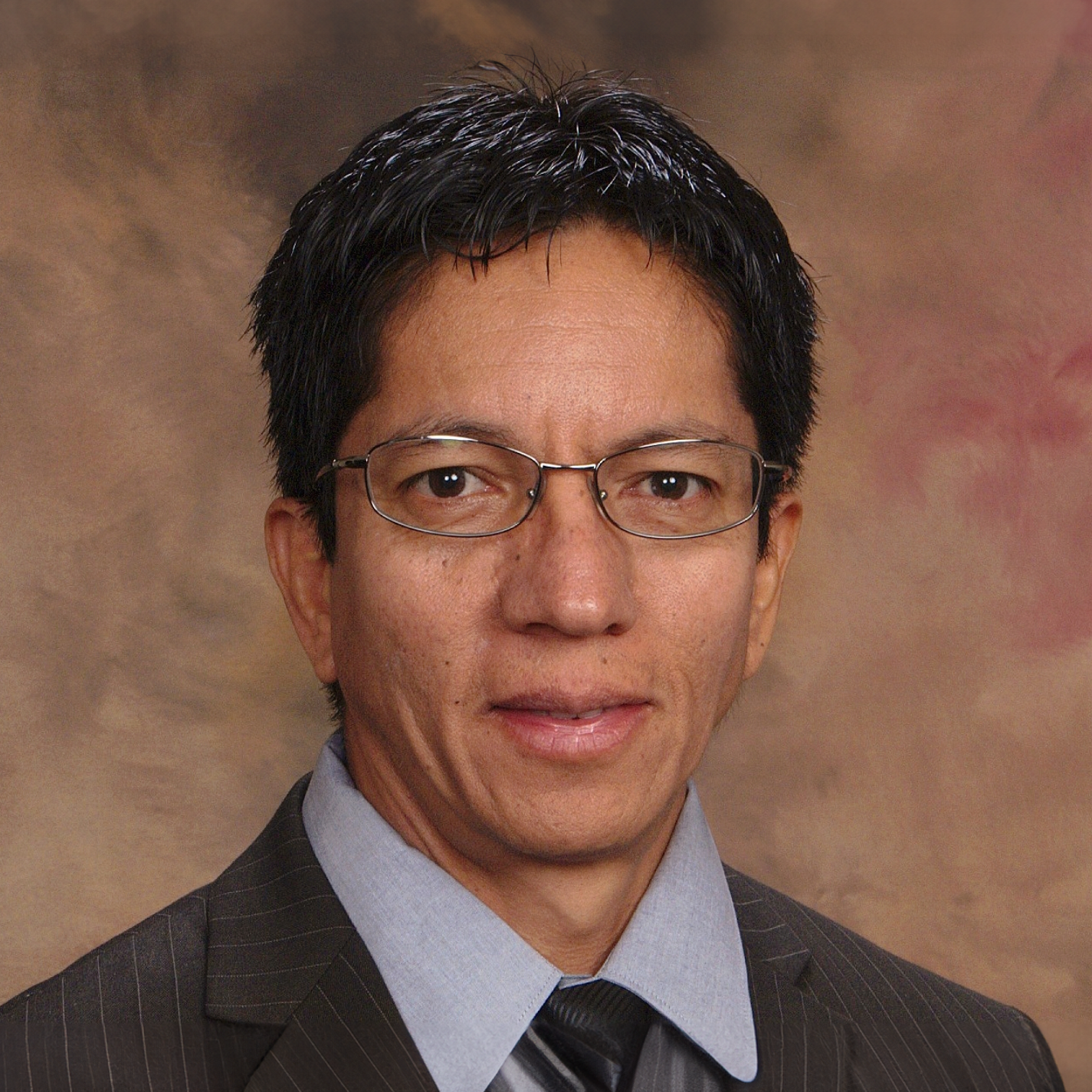
Toxicologist, Office of Environmental Public Health Sciences, Environmental Public Health Division, Washington State Department of Health
Elmer Diaz has over fifteen years of public health experience with a background in risk-assessment level report writing and evaluating toxicological impacts of chemicals, for the Department of Health – Site Assessment and Toxicology Section. Current work includes prioritizing toxic chemicals of concern to human health (especially children and pregnant women), assessing potential risks to human health from chemicals present in consumer products and hazardous areas. He leads the Washington Choose Safe Places Program, a non-regulatory program to help early care and education programs to protect children from harmful environmental substances by choosing safe locations for their center.
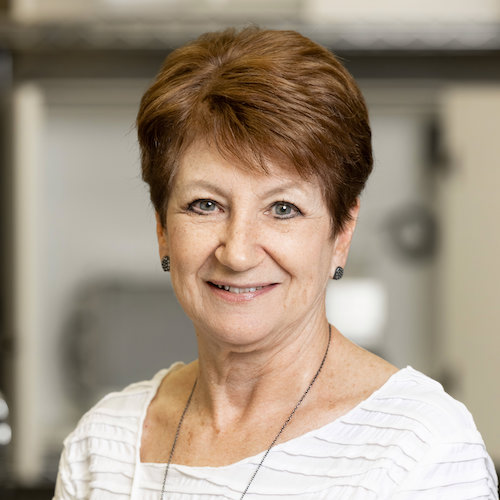
Professor of Environmental Medicine, Neuroscience, Pediatrics & Public Health Sciences, University of Rochester Medical School
Dr. Deborah Cory-Slechta is a Professor of Environmental Medicine, Neuroscience, Pediatrics and Public Health Sciences at the University of Rochester Medical School, and former Chair of its Department of Environmental Medicine and PI of its NIEHS Core Center Grant. She also previously served as Dean for Research at the University of Rochester Medical School, and as Director of the Environmental and Occupational Health Sciences Institute of Rutgers University. Her research includes both animal models and human studies focused largely on the consequences of developmental exposures to environmental chemicals on brain and behavior. This work has examined the effects of developmental exposures to metals, pesticides and most recently inhaled air pollutants in animal models and human cohorts. In addition, she has focused on the combined effects of chemical exposures with stress and on cumulative risk. These efforts have resulted in over 210 peer-reviewed publications. Dr. Cory-Slechta has served on advisory panels of the NIH, the FDA, the Environmental Protection Agency, the National Academy of Sciences, the Institute of Medicine, and the Agency for Toxic Substances and Disease Registry, and on the editorial boards of the journals Environmental Health Perspectives, Neurotoxicology, Toxicology, Toxicological Sciences, Toxicology and Applied Pharmacology and Neurotoxicology and Teratology. She has also served on the U.S. EPA Science Advisory Board and the Board of Scientific Counselors, ATSDR/CDC.

President & Co-Founder, Environmental Working Group
Ken Cook, president and co-founder of Environmental Working Group, is widely recognized as one of the environmental community’s most prominent and influential critics of industrial agriculture, U.S. food and farm policy and the nation’s broken approach to protecting families and children from toxic substances.
Under Cook’s leadership over the past 20 years, EWG has pioneered the use of digital technologies to expose the harms done by misconceived crop subsidies, crop insurance and runaway agricultural pollution. The organization has also empowered American families with easy-to-use, data-driven tools to help reduce their exposure to potentially harmful ingredients in foods, drinking water, cosmetics and other household products. These unique digital resources are searched hundreds of millions times by consumers, journalists and policy makers.
Cook is a widely sought public speaker on these and other environmental health issues and is frequently cited for the outsized impact that his and EWG’s work has had on policy debates in Washington and state and local governments across the country. Highlights include:
• Author and food policy expert Michael Pollan named Cook one of “the world’s 7 most powerful foodies” alongside First Lady Michelle Obama, nutritionist Marion Nestle and New York Times columnist Mark Bittman. In pre-Thanksgiving column in 2013, Bittman listed EWG among 25 people and organizations for which he was most thankful.
• Capitol Hill’s closely read The Hill newspaper regularly lists Cook in its annual roster of Washington’s top lobbyists. In 2013 it said Cook’s “influence spans the country” and called EWG “the tip of the green movement’s spear when it comes to agriculture and food policy.”
• In 2009 Cook was voted the “Ultimate Green Game Changer” by readers of The Huffington Post. As founder Arianna Huffington put it, “EWG is an environmental superhero with a full set of digital tools in its arsenal.”
• Cook testifies regularly before Congressional committees and has given well-received talks at a variety of venues including the White House, South by Southwest (SXSW), TedX Manhattan and a number of other conferences and universities.
Cook was a principal architect of landmark provisions of the 1985 farm bill that for the first time shifted U.S. farm policy from a narrow focus on maximum crop production to conservation of land, water, wetlands and wildlife. The legislation was widely regarded the most important environmental farm policy reform in decades. He went on to co-found EWG, which created an online database of federal farm subsidy payments and recipients that has generated thousands of stories about the nation’s broken farm policies. A New York Times profile of Cook said the website helped “transform the [2002] farm bill into a question about equity and whether the country’s wealthiest farmers should be paid to grow commodity crops while many smaller family farms receive nothing and are going out of business.” Cook and EWG played a similarly prominent role during the crafting of the 2008 and 2014 farm bills, fighting successfully to add conservation requirements on farms that benefit from federally subsidized crop insurance.
In the 1990s, EWG’s research was a major factor in the passage of the landmark pesticide reform law, the Food Quality Protection Act. EWG was among the first to draw attention to the health threat posed by the weed-killer atrazine and conducted the first extensive tests for the chemical in tap water in 29 Midwest cities. In the last several years Cook and EWG have been in the forefront of national and state campaigns to require the labeling of foods that contain genetically engineered ingredients.
Cook has addressed food, agriculture and toxics policy in countless media interviews, including with 60 Minutes, CBS Evening News, NBC Nightly News, the Today Show, MSNBC, CNBC, FOX Business News, CNN’s Anderson Cooper 360, The New York Times, The Washington Post, The Associated Press, Reuters, The Los Angeles Times and The San Francisco Chronicle. He testifies regularly before House and Senate committees and for the past 20 years has briefed top White House officials and every U.S. Secretary of Agriculture and EPA Administrator on EWG’s research and policy positions.
He has been recognized with multiple awards from health and environmental organizations including Mount Sinai Hospital’s Children’s Environmental Health Center, the U.S. Healthful Food Council and Epidemic Answers.
Cook is a board member of Food Policy Action (and founding chairman), Organic Voices, Amazon Conservation Team, Marin County Bicycle Coalition and a former member of the board of the Organic Center. He earned a B.A. in history, B.S. in agriculture and M.S. in soil science at the University of Missouri-Columbia.
He is married to Deb Callahan and lives in northern California with their young son, Callahan.